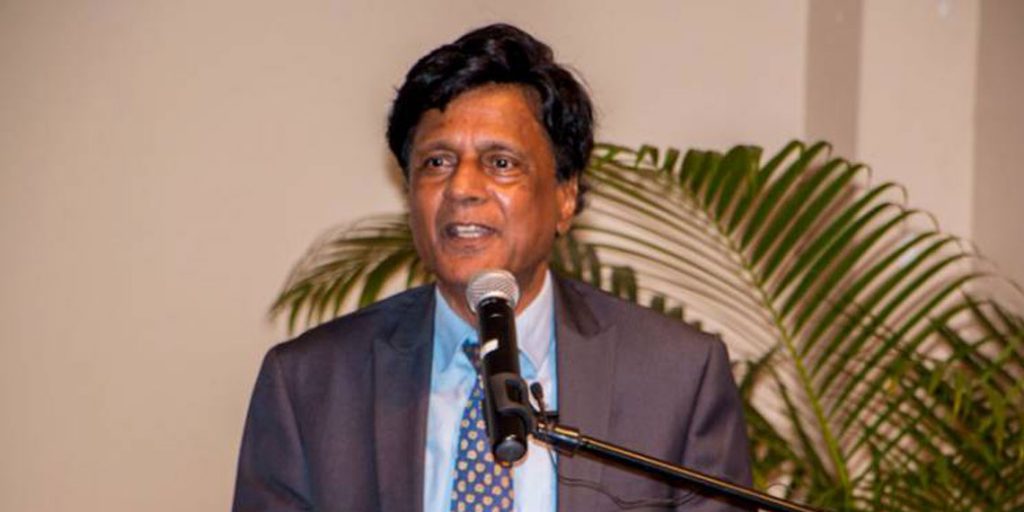We have just commemorated the 55th Anniversary of our Independence which was granted to Forbes Burnham and the PNC after they colluded with the British and the Americans to oust the PPP of Cheddi Jagan “by any means necessary”. The US, as later expressed by James Schlesinger, was contrite over their action but by the time the PNC was forced to relinquish power in 1992 through free and fair elections, Burnham had so corrupted the institutions to create a totalitarian state, that we still have become freed of its effects.
After 1968, the PNC jettisoned its junior coalition partner, the UF, and started rigging elections to retain power as a minority regime. We witnessed the PNC under granger attempting to repeat the elections rigging. Burnham introduced a form of governance (post-1968) that sought to establish and maintain absolute control over the state and society. He used the following stratagems:
First: A single mass party, led by a dictator. While Burnham allowed other parties to exist during the electoral-rigging era, those parties never threatened the PNC’s rule, and Guyana in actuality became a one-party state. That is: while other parties might have been permitted to exist, they were never allowed to compete effectively with the PNC. If they ever posed a real threat to the regime, as the Working People’s Alliance (WPA) did briefly by 1979, the totalitarian “sharper steel”, in the words of Burnham, was bared. In the same year (not coincidentally) a new Constitution confirmed Burnham’s absolute control over Guyana.
Second: A system of terroristic control. The House of Israel — loyal to the PNC “Kick down the door” – bandits, arbitrary search and seizures by the police, police informers in every locality, assassinations, ostentatious marches by the army through opposition strongholds, etc. kept the opposition under control, and the opposition population in terror. Indians responded to the pressure by mass migration: joining the earlier wave of migrants – primarily Portuguese – who had fled the P.P.P. “initiatives” during their 1957-1964 terms at the helm. Soon half the country was abroad. For those who remained, corruption was institutionalised, as it became the avenue of relating to, and dealing with, the system. Corruption was power, and absolute corruption became absolute power.
Third: A near monopoly control over mass communication and education. The Government’s nationalization of, and PNC control over, the media (radio and newspapers; television was not permitted), and establishment of the GPSA in tandem with a program of harassment of the opposition newspapers through libel suits and bans on newsprint, consummated this imperative. Schools were all nationalized, and mass games introduced.
Fourth: A near monopoly control over the “coercive” apparatus of the state. The Guyana Disciplined Forces — Army, Police Force, Fire Service, National Service, People’s Militia and National Guard Service — were expanded exponentially, staffed with a ninety per cent African membership. All officers swore personal loyalty to the leader of the PNC, to provide — along with the similarly constituted Police Force — the coercive basis for the P.N.C.’s rule. David Granger was in charge of their ideological training.
Fifth: The central control and direction of the economy. By the PNC’s boast, they nationalized eighty per cent of the economy by 1976. Party membership and support for the Party’s position became prerequisites for maintaining a job. In Burnham’s words, those who were fired stayed fired.
The co-operative, which was to be the cornerstone of the economy, was to be the vehicle for rewarding the lower class African Guyanese supporter, but by the late 1970s, most had collapsed. African Guyanese now joined the exodus to the “outside”.
Sixth: A near monopoly over all civil organizations. Trade Unions, religious organizations, schools, cultural organizations, and social bodies were all either subverted or controlled by the PNC intimidation: by buying off compliant leadership, or by the creation of paper organizations which were given governmental recognition and a place at the Government’s trough. Indian Guyanese leaders were placed in highly visible but essentially powerless positions to create a façade of a “non-racial” Government.
Seventh: an official ideology. The PNC announced in 1974 it was a Marxist-Leninist party, and was reorganized as the “vanguard of the masses”. While there have been interminable discussions as to the “sincerity” of the PNC in its avowal; at a minimum, Marxism-Leninism gave the PNC an appropriate vocabulary and methodical postulate for its innovations and excesses.
This is the Burnhamite legacy that Granger has promised to continue.
Forewarned is forearmed.
ROAR of Ravi Dev
